About this course
Excellent research opportunities await in the Dept. of the Civil Engineering, enabling you to work at the forefront of developments with leading experts.
- Study full or part-time over one to seven years
- Complete your research degree (MPhil/PhD) in a Faculty known for its internationally-acclaimed research
- Explore scholarship opportunities
- Benefit from expert supervision and researcher training
- Enjoy excellent facilities and great employment connections
The programme route you undertake will depend on your qualifications and experience. Most of our students initially register for MPhil/PhD and go on to complete their PhD via successful progression from MPhil.
You can study for an MPhil full time over one or two years or part time over two to four years. Progressing from an MPhil (and including MPhil registration), you can study for a PhD full time over 33 to 48 months or part time over 45 to 84 months. If you are taking a direct route PhD, you can study full time over two to three years or part time over three to six years.
On joining LJMU you will be allocated up to three supervisors (including a Director of Studies) who will work with you during your studies. Progression monitoring is undertaken formally and informally by this team on an ongoing basis.
Each year, each Faculty provides the University Research Degrees Committee with a summative report on the progress of all its eligible postgraduate research students.
Throughout your studies, you will also have the support of LJMU’s Graduate School which offers expert advice and guidance to those enrolled on MPhil and PhD programmes.
Course modules
Discover the building blocks of your programme
Department of Civil Engineering
Explore the possibilities
The Department of Civil Engineering’s Built Environment and Sustainable Technologies (BEST) Research Institute works collaboratively with leading international universities and research centres across the EU, the Middle East, the Far East, US, Norway and New Zealand. It is also supported internationally by the EU, UK and USA Ministry of Defence, Carbon Trust, Technology Strategy Board and has secured funding to develop a range of innovative projects from industrial partners such as United Utilities, Ministry of Defence, NHS, Tarmac and Taylor Woodrow.
The institute is involved with various high-profile conferences and events, including the Annual International Conference on Asphalt, Pavement Engineering and Infrastructure, the International Conference on Sensing Technology and the Annual BEAN (Built Environment and Natural Environment) Research Student Conference.
Our Built Environment and Sustainable Technologies (BEST) Research Institute focuses heavily on applied research, closely linked to industry requirements but also includes significant areas of theoretical ‘blue-skies’ work aimed at addressing longer-term global needs. We are securing increasing research income and have a long-standing history of national and international collaborations with other academic institutions and industry partners.
In recent years BEST has secured more than £7 million of research funding, published close to 600 research papers, books and industry reports and enabled 40 research students to complete their PhDs.
Our academic team consists of industry professionals working alongside nationally and internationally acclaimed research active academics, who collectively deliver a broad-based and professionally relevant learning experience.
Expert supervision is offered in the following areas:
- Sustainable technologies
- Water and wastewater treatment technologies
- Catastrophic failure of tanks
- The use of sensors in the water industry
- Renewable energies and recycling
- The use of innovative techniques and materials for pavement design
Further guidance on modules
Modules are designated core or optional in accordance with professional body requirements, as applicable, and LJMU’s Academic Framework Regulations. Whilst you are required to study core modules, optional modules provide you with an element of choice. Their availability may vary and will be subject to meeting minimum student numbers.
Where changes to modules are necessary these will be communicated as appropriate.
Your Learning Experience
An insight into teaching on your course
To complement your research, specific training needs will be identified on an individual basis. You can study topics such as:
- Advanced Presentation Skills
- Applying for Ethical Approval
- How to be an Effective Researcher
- Poster Presentation/Design
- Postgraduate Employability Skills
- Project Management
- Writing Skills including Creative Planning for Writing your Thesis
- Surviving the Viva
- Speed Reading
How learning is monitored on your programme
To cater for the wide-ranging content of our courses and the varied learning preferences of our students, we offer a range of assessment methods on each programme.
Where you will study
What you can expect from your School
We offer postgraduate researchers access to excellent teaching and learning facilities plus plentiful social spaces and, of course, support and guidance from our expert academics.
Career paths
Further your career prospects
LJMU has an excellent employability record with 96% (HESA 2018) of our postgraduates in work or further study six months after graduation. Our applied learning techniques and strong industry connections ensure our students are fully prepared for the workplace on graduation and understand how to apply their knowledge in a real world context.
Studying for a postgraduate research degree enhances your employability in a number of ways.
As well as enabling you to focus on your specific areas of interest and expand your subject knowledge ready for employment in your chosen sector, a postgraduate research qualification enables you to take charge of your career path by demonstrating your contribution to an area of knowledge. It enhances your self-confidence and showcases your ability to work independently and ‘go it alone’.
Some postgraduate research students are already in full-time employment when they begin their studies, whilst others are recent graduates looking to extend their research capabilities and subject expertise.
A good proportion of our students return to their existing roles with enhanced career prospects, others move on to further study or take up teaching roles in educational establishments.
According to a report by the Higher Education Statistics Agency (HESA), more than a quarter of graduates felt that their employment prospects were increased by their PG qualification. And when it comes to earnings, those with a postgrad qualification have been shown to earn an average of 24% more than those who leave education with an undergraduate degree.
Tuition fees and funding
How to fund your postgraduate research
Securing funding can be one of the main hurdles you face when considering postgraduate research. However, help is available. LJMU has a team of fees and funding experts who can offer advice based on your personal circumstances. You can contact them on 0151 231 3153/3154 or via studentadvice@ljmu.ac.uk
Entry requirements
You will need:
- For entry to MPhil - a 2:1 Honours degree in a relevant subject.
- For entry to PhD - a 2:1 Honours degree in a relevant subject, preferably also a Masters degree in a relevant subject.
Additional information:
- IELTS 6.5 minimum 5.5 in each component)
- 58-64 (minimum 51 in each component for UKVI purposes)
- RPL is accepted on this programme
We also welcome applications from those with non-standard qualifications who can demonstrate knowledge, experience, and skills developed in the workplace or other setting relevant to the programme of research.
If you do not hold the standard academic entry requirements, please use your personal statement to provide further details. Non-standard applications will be considered by the Admissions Tutor(s) on a case-by-case basis.
How to apply
Securing your place at LJMU
All research degree registrations are subject to approval by the Faculty and University’s Research Degrees Committee. The Applications process is as follows:
- Complete and submit your application using this online form
- You will receive an acknowledgement
- Your application will be considered by the Admissions Tutor
- We will take up your academic references
- You may need to provide further information or attend an interview
- You will be informed if your application has been successful and will find out about any conditions of acceptance
Your university life
From accommodation and academic support to clubs and societies. Find out what LJMU has to offer.
Related Links
Talk to our students
Connect with a current LJMU student for advice and guidance on university life, courses and more.
See what our students are saying
At LJMU we want you to know you’re making the right choice by studying with us. You can see what our students are saying about their experience with us through their reviews on the following websites:
Related Links
News and views
Browse through the latest news and stories from the university

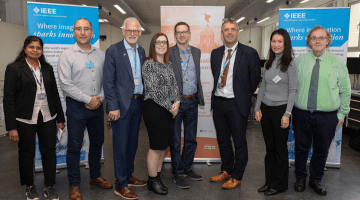
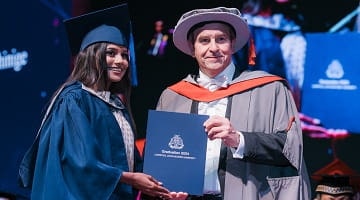
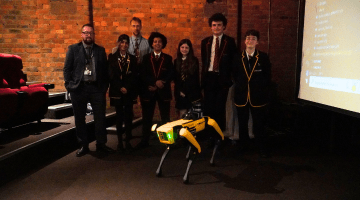
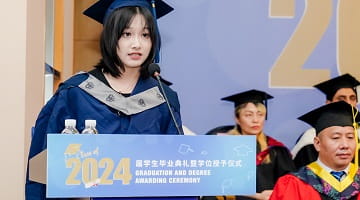

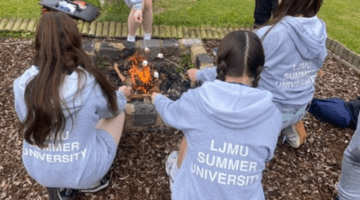


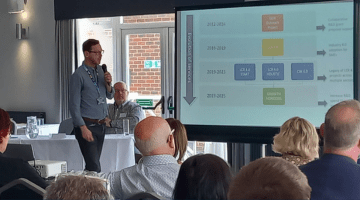
The University reserves the right to withdraw or make alterations to a course and facilities if necessary; this may be because such changes are deemed to be beneficial to students, are minor in nature and unlikely to impact negatively upon students or become necessary due to circumstances beyond the control of the University. Where this does happen, the University operates a policy of consultation, advice and support to all enrolled students affected by the proposed change to their course or module.
















